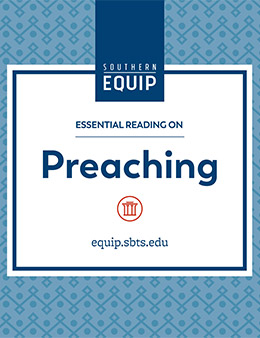3 strategies for preaching on holidays
Should I pause my expository preaching on holidays?
I love preaching an expositional series. That’s been my practice for 39 years of pastoral ministry. Getting into a book, working through its richness each week, and applying truth to my own life and to the congregation has been unusually satisfying.
Then come the holidays.
Admittedly, as I work through my preaching plans, sometimes I’m caught in a bit of an ugh moment in considering whether or not to break for a seasonal sermon. That means pausing my train of thought, picking a random text, working through its biblical context, and making applications that may be unrelated to the theme I’ve been preaching.
Still, I’ve found this pause useful on many occasions.
I’ve also discovered not every holiday requires a series pause. Sometimes, if appropriate, I can refer to the season in the normal series’ introduction or at some point along the way without preaching a different sermon. On other occasions, a focused sermon proves appropriate.
Here are three areas of sensitivity to help you decide if you need to break from your expositional series when holidays roll around.
1. Be theologically sensitive
Think about the big picture of what you are teaching your congregation. You desire that they understand the storyline of Scripture. Pausing to think more intensely on the incarnation at Christmas and the resurrection at Easter will fit that theological aim. Sometimes breaking for a mini-series on the incarnation or the Passion narratives will help you to connect the theological dots from the whole of Scripture much better than a single sermon for the season. Interrupting your expositional series is certainly appropriate for that aim.
Does everyone in the congregation understand these major biblical themes of incarnation and resurrection? Make sure by regularly revisiting them, since they are central to seeing Christ in all of Scripture. This practice solidifies the congregation’s grasp of Scripture and understanding of biblical theology.
On the other hand, Thanksgiving, Mother’s Day, Father’s Day, New Year’s Day, and similar holidays do not hold the same weight in teaching biblical theology to your congregation as Christmas, Palm Sunday, and Easter. So we need to broaden our sensitivities to another consideration.
2. Be culturally sensitive
Holidays outside Christmas and Easter may be a good time to break your series to make biblically appropriate application. To address the subject yearly, I normally preach a family-oriented sermon on Mother’s Day but not necessarily on Father’s Day. I preached through Ephesians last year, including several sermons on the family in November. My associate pastor preached “Who Is Building Your House?” from Psalm 127 on Mother’s Day, and I preached from Ephesians 2 on Father’s Day with no reference to the occasion. I would get to it in five months.
At other times, prompted by issues in the community or a rise in marital counseling, I’ve used both of those family-styled holidays to preach on the Christian view of marriage or parenting. Must you do the same? Not necessarily, but be sensitive to your congregation’s needs.
Since I weave gratitude into the warp and woof of my preaching, pastoral prayers, and comments in worship, I generally do not pause to do a separate message on Thanksgiving. But that’s me. Your setting might profit from it. On occasions when the transition into the new year comes with extraordinary anxiety, I might do a separate sermon addressing this concern on New Year’s Sunday. Depending on my current expositional series, I may break on Reformation Sunday to address one of the solas of the Reformation. Otherwise, I illustrate the sermon from a Reformation figure or event.
3. Be pastorally sensitive
Here’s where consciousness to the Spirit’s leadership focuses your preaching plans. Is it timely to break your series to preach on a holiday-related theme? We finally determine that it’s not about what someone recommends or what we feel like doing, but plans for preaching must remain sensitive to the promptings of the Spirit. Planning preaching involves more than calendar and texts. We must seek the Lord’s desires.
Additionally, you and the congregation may need a little change of diet from a long expositional series by doing one or two sermons during a holiday period. For instance, if you’ve been preaching through a Gospel for a year and have another year to go, doing a break on occasion will be good for you—lest you lose sight of broader biblical themes—and for the church, lest members wonder if you’ll ever preach from another book.
Since the holiday-themed sermons generally have a more limited textual range you may struggle to locate a different text for yet another year’s holiday. Face the fact that you will repeat Matthew and Luke’s birth narratives and Philippians’ “forgetting what lies behind.” And rightly so! It’s okay to repeat those texts.
Your prior study and notes may speed preparation time, so you might enjoy a bit of the particular holiday with your family. Scheduling those repeated texts in your preaching plan allows you to catch your breath so you can renew your energies toward your regular expositional series. In such cases, be pastorally sensitive to yourself—the pastor.
A congregation may expect a holiday-themed sermon. If your tenure among them is brief, then be slow to change that expectation, but don’t be hamstrung by it. Ultimately, you answer to the Lord for what you preach. Deliberately work toward focusing their attention on the regular exposition of God’s Word. Use holiday sermons for theological instruction and pastoral application rather than merely fitting into a grid for the sake of the season.
This article was originally published at TGC.



